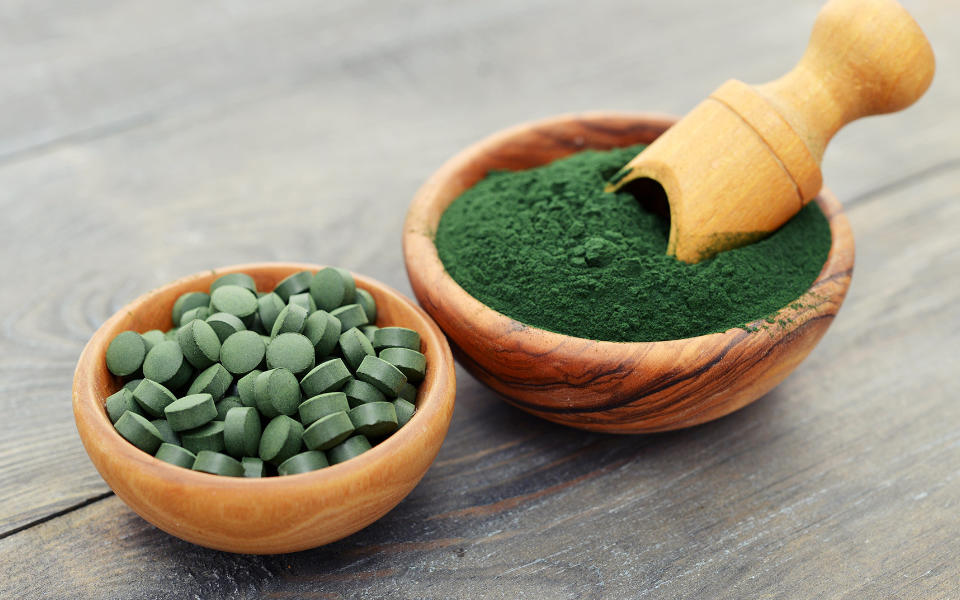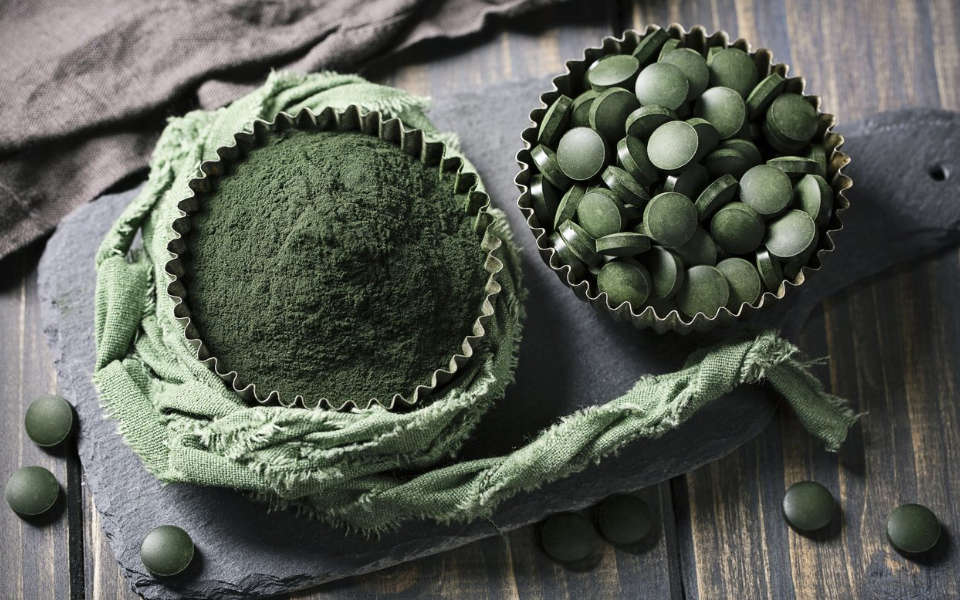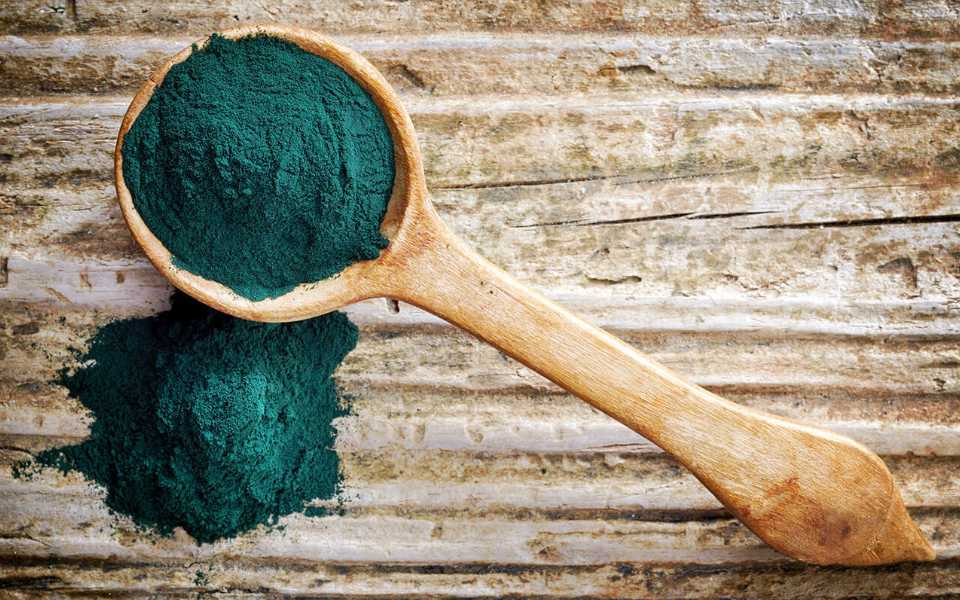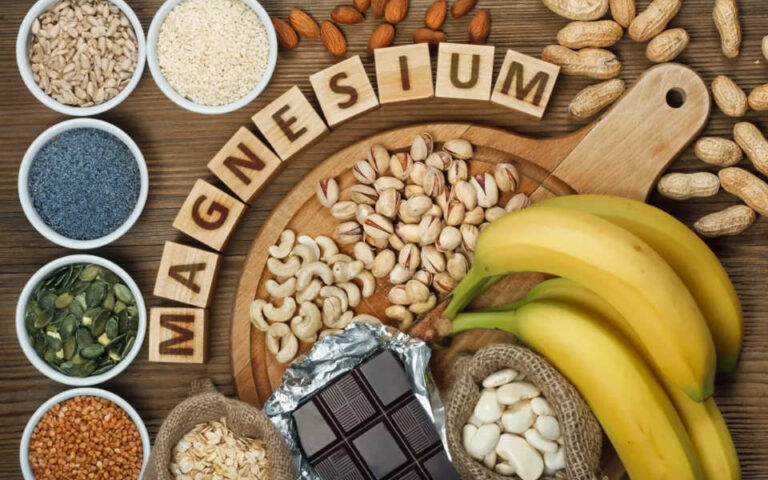Spirulina is one of the hottest superfood powders of today. Thanks to NASA using it and calling it the ’food of the future’, this health food-slash-supplement has been more famous than ever. Not only is it easy to cultivate, but it’s packed with nutrients as well. With spirulina’s touted health benefits against heart disease, diabetes, inflammation, even cancer, it has become the go-to supplement for many health enthusiasts.
What is Spirulina?
Spirulina is a type of blue-green algae that grows in fresh and saltwater, specifically in the sunny climates of India, Spain, the US, Japan, and Greece. It is a type of cyanobacteria, a single-celled organism that can make its own food. Technically speaking, spirulina refers to the dried mass of a bacterium known as Arthrospira platensis.
While spirulina powders were recently made famous by NASA’s use of it in space, its potential has long been identified by the ancients. Named ‘tecuitlatl’ by the Mesoamericans, this food source was used to make cakes – up until the 16th-century Spanish conquest. It was grown by the Aztecs in the now-drained Lake Texcoco, which is the present-day site of Mexico City.
This fondness for spirulina is not limited to Central and South America though, as it was considered a delicacy in Africa as well. Like the Aztecs, the Kanembu tribe of Chad made spirulina cakes they called fondly called ‘dihe’.
From its humble beginnings, this nutritious supplement has evolved into a variety of forms. Apart from the usual spirulina powder, there are spirulina tablets and capsules available as well. This health supplement is even added to various recipes – ranging from popcorn, energy bars, even spirulina smoothies!

Is Spirulina a Good Source of Protein?
Yes! According to the US Department of Agriculture, 1 tablespoon (7 grams) of spirulina contains 4.02 grams of protein. This is about 10% of the recommended dietary allowance for a 50-kilogram individual. To wit, the prescribed intake should be 0.8 grams of protein per kilogram of body weight.
Apart from being a good source of protein, a tablespoon of spirulina also contains the following nutrients:
- Dietary fibre – 0.252 grams
- Calcium – 8.4 mg
- Iron – 2 mg
- Magnesium – 13.6 mg
- Phosphorous – 8.26 mg
- Potassium – 95.4 mg
- Sodium – 73.4 mg
- Zinc – 0.14 mg
- Copper – 0.427 mg
- Vitamin A – 39.9 IU
- Riboflavin – 0.257 mg
What are the Benefits of Spirulina?
With its many nutrients, spirulina can benefit your body in many ways:
1. Spirulina May Help Prevent Heart Disease
According to the British Heart Foundation, more than a quarter of all UK deaths result from heart and circulatory disease. The most common culprit is coronary heart disease, which contributes the most to the annual death rate. The foundation pegs it at 170,000 annually – which is roughly 1 in every 3 minutes.
Although fatal, it can be prevented. The key to this is lowering blood pressure and cholesterol, specifically low-density lipoprotein (LDL). Known to many as ‘bad cholesterol’, excessive LDL could clog your arteries, leading to a heart attack or stroke.
Apart from exercising and eating a healthy diet, consuming spirulina regularly may work wonders for your heart. Multiple studies have shown that spirulina powder can help lower LDL and triglyceride levels. The dosage ranges 1 to 8 grams daily, with the duration varying from 1 to 6 months.
Since spirulina can help manage lower cholesterol levels, it can help reduce blood pressure too. With these effects, spirulina can help the British population win the fight against cardiovascular disease.
2. Spirulina May Help Reduce Diabetes Risk
Diabetes is another one of the many lifestyle diseases ravaging the UK, with the bulk of the cases affecting England. According to diabetes.co.uk, diabetes affects roughly 549,000 citizens – and those are just the ones who are diagnosed. The foundation estimates that there are about 3.45 million British people who remain undiagnosed.
Since diabetic complications are brought about by high sugar levels, the main thrust of treatment is to control blood glucose. While this can be achieved with the help of medications and carbohydrate-controlled portions, consuming spirulina may be beneficial for diabetics as well.
According to the above-mentioned study, spirulina may help reduce both fasting (before meals) and post-meal blood sugar levels. This appears to be dose-dependent, as 2 grams can reduce the said figures by 21.8% and 18.9% respectively. While a 1-gram supplement works, it could only reduce the same measures by 16.3% and 12.5%.
3. Spirulina May Help Boost Immunity
A poor immune system may be caused by a lot of things – inadequate nutrition, lack of sleep, and alcohol intake, among many other things. Apart from making you prone to illnesses and infections, this could lead to tummy troubles and slow wound healing. To make things worse, a poor immune system can also make you feel more fatigued or stressed out.
More than just improving your lifestyle choices (i.e. sleeping better and cutting alcohol consumption or smoking), a healthy diet is key to improving your immunity. You can even make this better by consuming spirulina recipes regularly.
So why is this important? For one, a study has shown that spirulina can help increase the production of Immunoglobulin A. This helps improve mucosal immunity, which induces a type of adaptive immune response against pathogens.
According to another study, spirulina extract in hot water may help increase the action of Natural Killer cells. These release the substance interferon-gamma, which works by activating the natural immunity. At the same time, it can trigger a defensive response against bacteria and viruses.
4. Spirulina May Help Fight Bacterial and Viral Infections

As mentioned, spirulina helps promote the production of substances that boost immunity. With these spirulina benefits, it just may hold the key against viral and bacterial infections.
According to one study, spirulina can inhibit the growth of certain microbes by producing anti-bacterial metabolites. These substances are said to be more potent than known anti-bacterial compounds, including ethyl acetate, petroleum ether, and dichloromethane, to name a few. With that being said, it may help treat infections caused by the following organisms:
- Escherichia coli (diarrhoea)
- Proteus vulgaris (blood, urinary, and respiratory tract infections)
- Pseudomonas aeruginosa (respiratory and soft tissue infections)
- Staphylococcus aureus (boils, furuncles, and cellulitis)
- Bacillus subtilis and Bacillus pumilis (skin infections in newborns and immunocompromised individuals)
- Streptococcus faecalis (wound and urinary tract infections)
- Staphylococcus epidermidis (boils, impetigo, and toxic shock syndrome)
It can also fight fungi, specifically the Candida albicans series. This organism can cause a variety of problems, including oral thrush, vaginal yeast infection, nail fungus, and athlete’s foot.
Apart from killing bacteria and fungi, spirulina can also help fight viruses. With its polysaccharide known as calcium spirulan, it can help stop the replication of the viruses that cause cytomegalovirus infections, mumps, measles, herpes, influenza, even HIV. Add to that, calcium spirulan can also help prevent these viruses from invading the host cells.
The aqueous extract of spirulina has also demonstrated strong anti-viral effects, specifically to that of the HIV-1 virus. Research has shown that it can help stop the replication of the HIV-1 virus in various cells. Results show that a range of 0.8 to 3.1 mg/ml can help decrease viral growth by as much as 50%.
5. Spirulina May Curb Allergic Reactions
Your allergy is your body’s response against a substance that’s typically not harmful. This is usually triggered by pollen, dander, or food triggers known as allergens.
One of the more common types of allergic reactions is allergic rhinitis, which is commonly known as hay fever. In this condition, the presence of an allergen can make a person sneeze, itch, and swell. Spirulina may help reduce its symptoms by inhibiting the release of histamine, a compound involved in the inflammatory response.
Spirulina may also help reduce the level of interleukin-4 (IL-4), a substance that promotes inflammation in both allergic rhinitis and asthma. According to a study, the consumption of spirulina for 12 weeks can help reduce IL-4 levels by as much as 32%.
This positive result is backed by another study, which has proven spirulina’s ability to reduce itching, nasal congestion, sneezing, and discharge.
6. Spirulina May Help Prevent Oral Cancer
As mentioned, spirulina’s health benefits include enhancing one’s immunity. More than just fighting infection, this boost may help prevent cancer as well. Together with its anti-oxidative effects, spirulina may be able to help control tumour growth and development.
Spirulina is particularly effective in arresting the growth of oral leukoplakia, which manifests as a white plaque/patch that commonly occurs in smokers. According to a study, spirulina helped prevent the progression of the disease in 57% of patients with homogenous leukoplakia.
Apart from preventing oral cancer, it’s also a recommended part of ongoing maintenance. That’s because the discontinuation of spirulina supplements can lead to lesion recurrence within a year.
7. Spirulina May Help Protect the Liver
While liver disease is often seen in alcoholics, it can occur in the absence of it as well. This condition, known as non-alcoholic fatty liver disease, can be attributed to high fat intake and free radical damage.
According to a study, spirulina may help protect the liver from this condition. After all, results show that it helps control the levels of serum aspartate aminotransferase, liver free fatty acids, and liver triacylglycerols, all of which are associated with liver damage.
Supplementation of 4.5 grams of spirulina daily led to promising results in the study participants. It led to significant decreases in the above-mentioned markers, including a whopping 41% decrease in enzyme alanine aminotransferase levels.
9. Spirulina May Help Treat Arsenic Poisoning
While arsenic poisoning was rampant during the Victorian era, its prevalence has been greatly reduced throughout the years. The improved living and working conditions have made arsenic poisoning rare in the UK, although it remains prevalent in Bangladesh, Chile, Taiwan, and Thailand.
Arsenic affects the body by destroying the cell enzymes responsible for DNA repair and metabolism. This leads to symptoms such as stomach upset, excessive salivation, and a garlicky odour. Since this metal affects the heart and brain, it can eventually lead to multi-organ failure.
Arsenic poisoning requires various forms of treatment, including chelation, which helps remove the metal from the bloodstream. Apart from this, spirulina is also recommended for those afflicted with chronic arsenic poisoning. One study made use of 250 mg of spirulina extract plus 2 mg of zinc. After 4 weeks, it helped increase arsenic removal via urine. It also reduced keratosis, which is a skin pigment change caused by arsenic.
10. Spirulina is a Potent Anti-Oxidant
More than just treating and preventing diseases, spirulina may be good for your well-being as well. With its antioxidative properties, it can help fight free radicals – and the diseases they bring.
According to a study, spirulina makes this possible by activating the body’s antioxidant enzymes – while preventing DNA damage.
In the absence of antioxidants, free radical damage can lead to inflammation, which is typically the body’s normal response to infection or injury. This, after all, signals the immune system to heal the damaged tissue and protect itself from germs and microbes.
In some cases, the body can go haywire, with the immune system attacking its own tissues. This mechanism can lead to a variety of conditions, including coeliac disease, inflammatory bowel disease, lupus, and rheumatoid arthritis, to name a few. With spirulina, the risk of any of these may be reduced.
11. Spirulina May Help Improve Exercise Performance
Prolonged workouts can take a toll on your muscles and tissues. But instead of taking whey powders and energy drinks, you should consider spirulina smoothies instead. After all, a rat study has shown spirulina may be instrumental in improving exercise performance.
At the same time, its anti-oxidative and anti-inflammatory properties can help reduce muscle damage. After all, it can help minimize the production of lactate dehydrogenase (LDH) and creatinine kinase (CK).
12. Spirulina May Help Boost Your Energy Levels
Do you often feel tired and fatigued after a long day of work? Instead of drinking coffee or energy drinks, you should consider whipping a glass of spirulina smoothie. After all, it can help power you through the day.
Spirulina’s energy-boosting effects are attributed to the polysaccharides glycogen and rhamnose and the essential fat Gamma-linolenic acid. When absorbed by the body, these can promote immediate energy release.
Apart from these components, spirulina can also promote the action of the ‘good bacteria’ (probiotics) in the gut. These lactobacilli end up producing more Vitamin B6, which helps promote energy release.
Does Spirulina Detox the Body?
Detoxification or detox involves cleanses, juices, herbs, and diets for health promotion and weight loss. According to the National Centre for Complementary and Integrative Health, some studies have chronicled its benefits, which include reduced blood pressure, improved insulin sensitivity, and weight loss.
With spirulina’s benefits on the body, it is often used in detox regimens. That’s because spirulina is rich in vitamins and minerals that nourish the body. At the same time, spirulina has been deemed helpful in removing heavy metals (such as arsenic) from the blood.
While a spirulina and chlorella detox may do you good, the British Dietetic Foundation has a gentle reminder regarding the possible side effects of detoxing. You could feel weak, lightheaded, and irritable, especially if you don’t take anything else. With that being said, it’s best to take spirulina together with a balanced diet to enjoy its many positive effects.
How Much Spirulina Should I Take Daily?

While the US Food and Drug Administration has categorized this substance as “Generally Recognized as Safe”, you should follow the dose recommendations to prevent any untoward events.
Generally speaking, the safe intake range for spirulina is 1 to 8 grams daily. You could adjust the dosage, however, according to your intended effect:
- To lower cholesterol levels: 1 to 8 grams a day
- To reduce blood pressure: 3.5 to 4.5 grams a day
- To control blood sugar levels: 2 grams a day
- For a fatty liver: 4.5 grams a day
- To improve muscle performance: 2 to 7.5 grams a day
While you can take spirulina throughout the day, it’s best taken in the morning. As it can help boost your energy, taking spirulina at night may lead to sleep disturbances.
How to Take Spirulina Powder
Spirulina powder is known to be slightly savoury, with a sea vegetable flavour some people find off-putting. Some people, on the other hand, describe the taste as fishy and sulphur-like. Because of these varied tastes, diluting spirulina powder in water is a fairly unpopular option.
To make your spirulina more palatable, you can add it to other liquids. A good example is a spirulina smoothie, which tastes better with the addition of juice.
When doing so, make sure to blend your spirulina drink well. This is especially the case if you’re mixing it with fruits such as bananas, mangoes, or pineapples.
The same principle applies to making salad dressings. You know you’ve blended the mixture well once you achieve a beautiful greenish hue. This will make the taste more uniform, as it will prevent you from ingesting big clumps of this ‘fishy’ powder.
Apart from beverages, you can use spirulina in several recipes as well. You can add this to a bowl of mashed potato, guacamole, hummus, pesto, even oatmeal. You can even use this to make granola bars, brownies, truffles, and other sweet baked goods.
Before you add a dash of spirulina to your recipes, make sure to smell it first! Your spirulina should have a fresh scent. If it smells sour or rancid, it means that you need to throw it away.
What are the Side Effects of Spirulina?
Spirulina side effects are few, with nausea being the most common complaint.
With that being said, the key is to follow the recommended dose. It’s unsafe to go beyond 15 grams as this may lead to an accumulation of nutrients. As with most things, excessive intake can be just as bad for the body.
With its high phenylalanine content (0.194 grams for every 1 tablespoon), spirulina is not recommended for individuals suffering from phenylketonuria. The body’s inability to metabolize this amino acid can lead to intellectual disability, especially in afflicted infants.
As spirulina is rich in beta-carotene, a form of Vitamin A, taking too much may lead you to develop yellowish or orangey skin. Apart from that, excessive beta-carotene intake may also increase your risk of heart disease and lung cancer.
As with other algae, spirulina usually has high amounts of iodine. When taken in excess, it could lead to thyroid dysfunction especially in at-risk individuals. With that being said, pregnant women, older adults, and those with pre-existing thyroid conditions should consume spirulina carefully.
Tips on Buying and Storing Spirulina
While spirulina powder can help you detox, improperly-grown spirulina may be contaminated with bacteria and other heavy metals too. This is especially the case for the cyanobacteria grown in river water. Such products may contain harmful substances, including such as anatoxin-a and cylindrospermin. These could lead to adverse side effects, including nausea, dizziness, headache, fatigue, and dermatitis.
With that being said, it’s best to ask the seller/manufacturer where the spirulina is grown. The best products are spirulina powders, as they are often cultivated in contaminant-free environments.
As for storage, it’s good to keep your spirulina tablets and supplements in the fridge. While it can help extend shelf-life, its nutrient will surely diminish over time. As such, it’s best to consume the spirulina powder within a few months after opening.
Conclusion
Spirulina is a blue-green alga grown in fresh and salt water. A prized food source among the ancient Mesoamericans, it has also been regarded by NASA as the ‘food of the future’.
Spirulina is rich in proteins and other nutrients that make it very healthy. With regular consumption, spirulina could help reduce the risk of heart disease, diabetes, liver damage, and oral cancer. As it can help boost immunity and fight free radicals, it may help fight infections and minimize allergies. It may be useful against arsenic poisoning as well.
More than just preventing and treating diseases, spirulina supplements can help promote wellness. As it may help boost your energy levels, it can lead to better exercise results.
While spirulina powder can be used for detox, it’s best taken together with a healthy diet.
The recommended dosage is 1 to 8 grams of spirulina supplements, with your intake depending on your desired effect. It is important to work within this range, as excessive intake may lead to health problems.
While the spirulina side effects are notably rare, the presence of cyanotoxins may lead to headaches, nausea, and fatigue, to name a few.


